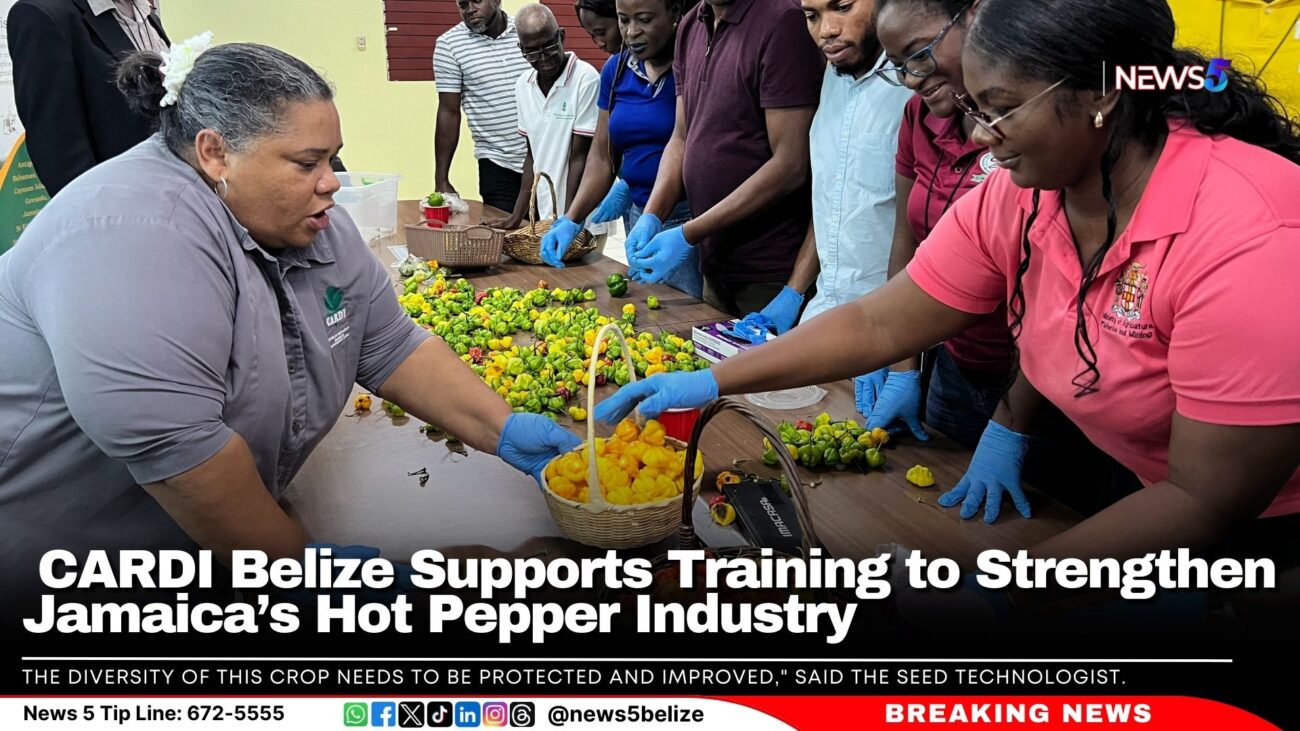CARDI Belize Supports Training to Strengthen Jamaica’s Hot Pepper Industry
Regional collaboration took centre stage as the Food and Agriculture Organization of the United Nations (FAO) recently hosted a specialised plant breeding training in Jamaica, aimed at enhancing the quality and production of hot pepper seeds. A key contributor was Omaira Avila, Seed Technologist/Biotechnologist from CARDI Belize, who joined other experts in providing critical skill-building and technical insights to 35 participants, including Jamaican plant breeders, private seed producers, and farmers.
The training, part of FAO’s Improving Phytosanitary, Food Safety, and Market Access Opportunities along the Hot Pepper Value Chain Project, aligns with efforts to establish Jamaica’s National Seed Certification System. This system is designed to increase the availability of high-quality, clean seeds and planting materials, ensuring greater productivity and sustainability for Jamaica’s hot pepper sector.
As a representative of CARDI, Avila’s participation underscores Belize’s support in tackling shared agricultural challenges within the region. “Hot pepper species (Capsicum chinense) is indigenous to the Caribbean and has become an important commercial crop. The diversity of this crop needs to be protected and improved,” said the seed technologist.
In speaking to the training’s importance, Avila pointed out, “Breeding is the way to guarantee the survival of this indigenous species in the light of climate change as well as the pest and disease challenges the region faces. Breeding also allows for the selection of market-desired traits and increased productivity.”
CARDI’s Manager of Science and Innovation, Fayaz Shah, emphasised, “We see this training as being very essential in allowing growth and expansion of the Jamaica pepper industry. CARDI traditionally would have been a major supplier of hot pepper seeds and technologies throughout the Caribbean, and we are very grateful to FAO and the Ministry of Agriculture for reaching out to CARDI to share our expertise.”
The three-day series opened with a stakeholder meeting and panel discussion exploring key policy issues and opportunities for growth, including community seed saving and geographical indicators. The training sessions were led by CARDI, with additional contributions from Trinidad and Tobago’s Professor Path Umaharan of the Cocoa Research Institute. Together, the team introduced participants to advanced breeding techniques and strategies essential for achieving genetic purity and high-performance seed varieties.
Following the training, FAO will equip Jamaica with specialised seed processing machinery, a move expected to enhance genetic purity and boost production efficiency. These advancements will improve international compliance standards, benefiting producers, processors, and exporters across the hot pepper value chain.
The regional approach demonstrates the impact of Caribbean cooperation in strengthening agricultural resilience and quality throughout the region.
Interview with Hafiz Muminjanov on FAO’s Coconut Initiative in Belize







Facebook Comments